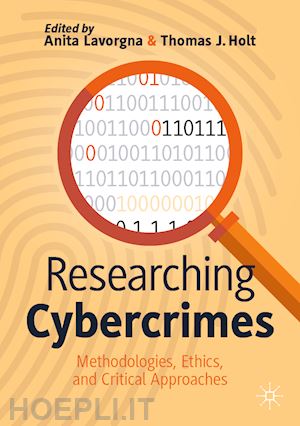
Questo prodotto usufruisce delle SPEDIZIONI GRATIS
selezionando l'opzione Corriere Veloce in fase di ordine.
Pagabile anche con Carta della cultura giovani e del merito, 18App Bonus Cultura e Carta del Docente
This edited book promotes and facilitates cybercrime research by providing a cutting-edge collection of perspectives on the critical usage of online data across platforms, as well as the implementation of both traditional and innovative analysis methods. The accessibility, variety and wealth of data available online presents substantial opportunities for researchers from different disciplines to study cybercrimes and, more generally, human behavior in cyberspace. The unique and dynamic characteristics of cyberspace often demand cross-disciplinary and cross-national research endeavors, but disciplinary, cultural and legal differences can hinder the ability of researchers to collaborate. This work also provides a review of the ethics associated with the use of online data sources across the globe. The authors are drawn from multiple disciplines and nations, providing unique insights into the value and challenges evident in online data use for cybercrime scholarship. It is a key text for researchers at the upper undergraduate level and above.











Il sito utilizza cookie ed altri strumenti di tracciamento che raccolgono informazioni dal dispositivo dell’utente. Oltre ai cookie tecnici ed analitici aggregati, strettamente necessari per il funzionamento di questo sito web, previo consenso dell’utente possono essere installati cookie di profilazione e marketing e cookie dei social media. Cliccando su “Accetto tutti i cookie” saranno attivate tutte le categorie di cookie. Per accettare solo deterninate categorie di cookie, cliccare invece su “Impostazioni cookie”. Chiudendo il banner o continuando a navigare saranno installati solo cookie tecnici. Per maggiori dettagli, consultare la Cookie Policy.